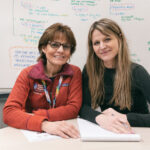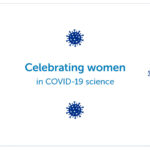‘The teamwork is outstanding’: A look inside the Colorectal and Pelvic Malformation Center
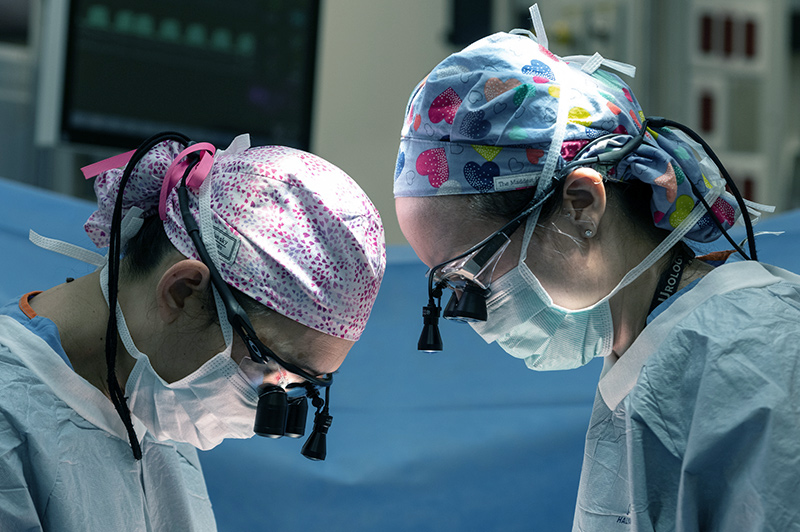
In honor of Women’s History Month, we sat down with some of the clinicians in Boston Children’s Colorectal and Pelvic Malformation Center (CPMC), one of the only centers of its kind led and staffed primarily by women. Here’s what they had to say about their work, their patients — and their hopes for the future.
Why did you choose to work in the CPMC?
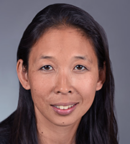
Belinda Dickie, MD, PhD, director of the CPMC: I was recruited to Boston Children’s to help build the center. So, as I tell many people, our team members are hand-picked based on their talents and how they fit in our team. Erin and I have been on the same wavelength as we recruit staff for the center in their commitment to patient-centered care.
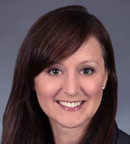
Erin McNamara, MD, MPH, associate director: I chose to work in the CPMC because I enjoy reconstructive surgery. I also knew that I would have great mentorship by Belinda and that was very important to me as I considered becoming a member of this center. The patients are complex and there’s a lot of attention to detail. We can also follow them throughout their childhood and into adulthood, so we see both the short- and long-term outcomes of our interventions and surgeries.
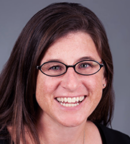
Deborah Stein, MD, nephrologist: I love that the center offers a unique framework to care for children with colorectal and pelvic anomalies in a multidisciplinary fashion, addressing many of their complex needs as a team to improve outcomes.

Prathima Nandivada, MD, surgeon: I agree — the teamwork is outstanding. Every person has their own expertise they bring to the table, and we all work so well together. The comradery and commitment to excellence helps us deliver exceptional care.
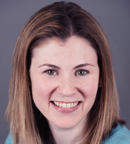
Lauren Mednick, PhD, clinical psychologist: Although my primary area of expertise is preparing kids for surgical interventions, I love that in the CPMC I can also work with patients and families in a more traditional therapist role, focused on helping them learn skills to promote healthy coping with their diagnoses.
What do you love most about your job?
Dr. Mednick: Debbie and Prathima already mentioned our team approach, which I really enjoy. Often the challenges that patients experience aren’t purely physiological or behavioral, but rather a combination of many factors. Successful management frequently includes both medical and behavioral approaches.
Dr. Dickie: I love that we don’t just provide great clinical care for our patients in a coordinated way — we look after the whole patient and family. We try to address both medical and psychosocial care.
Dr. Nandivada: And we foster long-term relationships with a lot of these patients. I often meet children in the first few days of their lives and help their families navigate unexpected situations in those early times. It gives me so much joy to get to continue to work with that family for the next several years and watch them thrive and become experts in keeping their child healthy and happy.
Dr. McNamara: I also love connecting with families and children — answering their questions, making them feel at ease, and then being able to do surgery to improve function and quality of life.
Dr. Stein: Exactly! I love my patients, watching them grow and thrive, and supporting families even through the harder times.
Have families ever referred to your gender (for example, are they happy to have a female clinician for their female child)?
Dr. Nandivada: I have mostly been able to connect more deeply with parents and children because of my gender, rather than feeling held back by it! As a mother especially, I can connect with so many of the experiences of the families I meet. We’re all learning together how to be the best parents for our children with their unique needs.
Dr. Stein: Many girls I’ve seen have been excited to have a ‘girl doctor.’ I have adolescent patients who have asked me questions about their own anatomy that they were embarrassed or afraid to ask their male providers.
Dr. Mednick: I think that’s true. Given the sensitive nature of the challenges that many of the patients experience, it’s not uncommon for a female patient, especially an adolescent, to express a preference to work with a female provider.
Dr. Dickie: I think for some of the female-specific malformations, it does help — for example, cloacas or imperforate anus in girls. As these children get to be older, some families have sought out experienced female providers, which we offer here. As female clinicians, we may have a different perspective, but we care for all of our patients in the same professional way.
Where do you see the field in another 10 years? What do you hope patient care looks like?
Dr. Nandivada: I think the best care for complex patients is multidisciplinary and hope that the future will embrace that style more and more.
Dr. Stein: I hope for easier access to care for all children, so that money, geography, and insurance are not allowed to limit the access to strong programs.
Dr. Mednick: I hope there are better alternatives for treatment and surgery for some of the cases that we see. I hope there is better care as patients become adolescents and adults.
Dr. Dickie: In the CPMC, we’re focused not only on surgical reconstruction but also making function as optimal as possible. We look to refine the way we do things and critically review our outcomes so as these children become adults they can thrive with no limitations.
What advice do you have for future or new clinicians who are interested in this type of work?
Dr. Mednick: Make sure to train with surgeons who do a lot of reconstructive surgery and work well in a multidisciplinary clinic. I learn a lot working with Belinda, even though we are different types of surgeons. Our patients have complex issues that need creative solutions.
Dr. Dickie: Find something you are passionate about and love to do. Then it is not ‘work.’ Find a team that has the same goals and objectives as you. Our team is passionate about making a difference in all the kids we see — even if it’s something small.
Dr. Nandivada: And listen to parents! As clinicians, we have our expertise in the diseases and procedures relevant to a child’s care, but the parents are the experts for that unique child’s journey. I have never regretted trusting a parent’s gut feeling when they felt something was concerning about their child.
Learn more about the Colorectal and Pelvic Malformation Center or refer a patient.
Related Posts :
-

Female leadership in neonatology: The value of mentorship
While the majority of neonatologists are women, women make up a far smaller proportion of neonatologists in leadership positions. A ...
-

Going into science: Women scientists at Boston Children’s offer advice to girls
In honor of the International Day of Women and Girls in Science (February 11), we invited women scientists at all stages ...
-

At the intersection of research and clinical care: Celebrating our female gastroenterologists
In honor of Women’s History Month and National Doctor’s Day, we’re celebrating just a few of the ...
-

Joining the fight against COVID: Women scientists at Boston Children’s are leading the way
When the COVID-19 pandemic hit in 2020, many women scientists around Boston Children’s pivoted to studying the new coronavirus and ...


